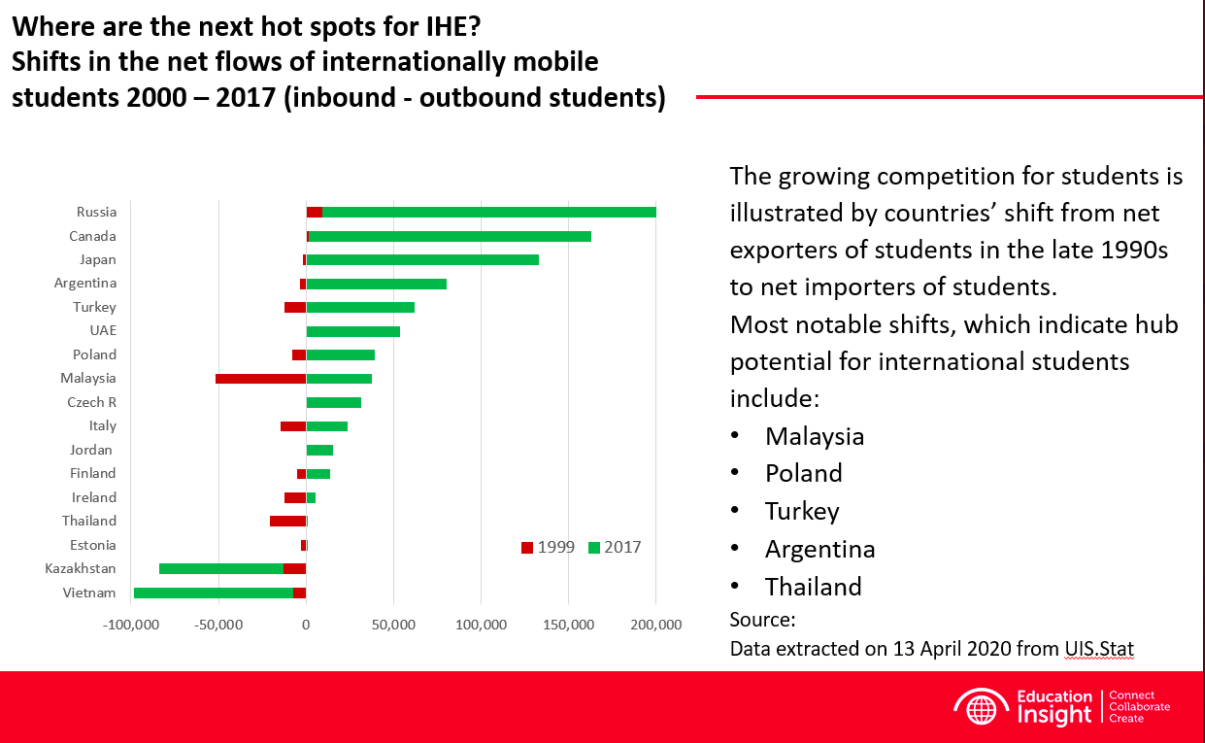Higher education institutions are being urged to hone their transnational education provision to mitigate the potential changes in a post-coronavirus educational landscape.
News and business analysis for Professionals in International Education
Have some pie!
Harness TNE to prepare for post-coronavirus landscape
 Africa is the "future of international education" Lee stated – an important area where educators can focus TNE efforts. Photo: Unsplash
Africa is the "future of international education" Lee stated – an important area where educators can focus TNE efforts. Photo: Unsplash Speaking at UUK’s IHEF Online conference, professor at the Center for the Study of Higher Education at the University of Arizona, Jenny Lee, encouraged institutions to envision TNE – where education is delivered by international providers to students in their home countries – as a more central segment of international higher education.
“TNE tends to be the little sister to traditional forms of international student enrolment”
“TNE tends to be the little sister to traditional forms of international student enrolment,” Lee said. “Clearly we know that we’re all experiencing major hits and a lot of uncertainty.
“For the most part, our reliance on the physical mobility of students has been the biggest risk that universities have been engaging in for quite some time,” she added.
“We know now the consequences of putting so much expectation on the mobility of students from China as well as India and other parts of the world to subsidise our operations.”
Additionally, TNE offers a way to “transcend some political agendas and barriers”, meaning institutions would worry less about travel bans or fiscal mobility concerns, Lee said.
“This post-mobility world goes beyond physical space, surpasses state borders and considers a broader global society and the responsibilities that we have. Our task at hand is to make a stronger case for TNE.”
🌏 ‘We see #TNE as too much of a commercial or educational venture, but don’t see it as a political which it inherently is.
We need to ensure that we form real partnerships. Are we actually capacity-building or just serving our own interests?’
💬 @jennyj_lee #IHEFonline pic.twitter.com/2m6JtqUwBP
— UUK Events (@UUKevents) April 22, 2020
Founder and director of Education Insight and TNE expert Janet Ilieva noted that cost-effective means of education will be in high demand because of the global crisis.
Covid-19 has an immediate impact on student mobility, “however a global recession, depending on its severity, is likely to have a much longer-lasting implication.
“It may be five years, it may be longer,” she suggested.
Ilieva said that the coronavirus will accelerate trends that would have taken decades to unfold, such as blended learning, intra-regional mobility and TNE growth.
 “Mobility within the world’s regions is likely to grow. TNE facilitates these trends by enabling UK universities to be present – either physically or through education partners – in the locality of students, or where students within the region are likely to study.”
“Mobility within the world’s regions is likely to grow. TNE facilitates these trends by enabling UK universities to be present – either physically or through education partners – in the locality of students, or where students within the region are likely to study.”
Countries which have previously shown students travelling intra-regionally include Vietnam, Bangladesh and Kazakstan, Ilieva added.
Across Europe the Erasmus+ program has lead to a lot of students studying in other countries for credit, but also the vast recognition of degrees and qualifications across the continent has encouraged mobility to study for a full degree.
“We know now the consequences of putting so much expectation on the mobility of students from China”
“Students that are likely to articulate from local partners to the UK are likely to do that only for a period of study – maybe a year, maybe a semester – but it will have a massive impact on the student body in the UK,” Ilieva continued.
“The turn over of students is likely to grow, however the duration of study is likely to reduce in the years to come.”
She explained that competition will be for reliable local partners in the countries where we are likely to see demand for international higher education, while agents are likely to start recruiting towards local higher education institutions.
Director of the Centre for the Study of Higher Education at the University of Melbourne, William Locke said that universities need to fully understand the regulatory and operating environment, including quality of internet access, accessibility of online learning resources due to the existence of national internet firewalls, as well as regulations around program approval and the taxation rules of the country.
‘Three major risks present before #Covid19:
✔️ Not understanding the regulatory environment & internet access in-country
✔️ Not ensuring the skills of staff in-country are sufficient
✔️ Not building price strategies balancing average income with quality’💬 @wdlocke #IHEFonline pic.twitter.com/bfM0jxvH3a
— UUK Events (@UUKevents) April 22, 2020
Government restrictions introduced as a response to the pandemic may “impact on different parts of education, on different individual institutions and their particular activities, such as international and specifically transnational education differentially”, Locke warned.
Still looking? Find by category:


